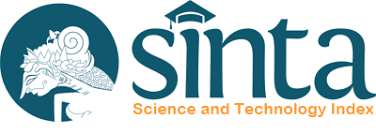Abstract
This study aims to identify the impact of the fiscal stimulus instrument choices on the economy, and to formulate policy options appropriate with the fiscal stimulus in boosting the economy, especially on economic growth, employment, and household income. The analysis tools is Applied General Equilibrium Model for Fiscal Policy Analysis (AGEFIS) using the Social Accounting Matrix database (SAM) of Indonesia in 2005. The simulation results show that (i) fiscal stimulus provide a boost to economic growth, employment, and household income, but on the other hand have a potential to cause an increase in price, (ii) government spending and cutting taxes on goods are the choice of instrument stimulus policies that provide the greatest multiplier effect in promoting economic growth, employment and household income.
Bahasa Abstract
Studi ini bertujuan untuk mengidentifikasi dampak dari pilihan instrumen stimulus fiskal terhadap perekonomian, dan merumuskan pilihan kebijakan stimulus fiskal yang tepat dalam mendorong perekonomian khususnya terhadap pertumbuhan ekonomi, kesempatan kerja, dan pendapatan rumah tangga. Alat analisis yang digunakan adalah model Applied General Equilibrium for Fiscal Policy Analysis (AGEFIS) dengan menggunakan basis data Social Accounting Matrix (SAM) Indonesia tahun 2005. Hasil simulasi menunjukkan bahwa (i) kebijakan stimulus fiskal mampu memberikan dorongan terhadap pertumbuhan ekonomi, kesempatan kerja, dan pendapatan rumah tangga namun di sisi lain diperkirakan berpotensi menyebabkan peningkatan harga-harga, (ii) instrumen pengeluaran pemerintah dan pemotongan pajak atas barang komoditas merupakan pilihan instrumen kebijakan stimulus yang memberikan dampak pengganda paling besar dalam mendorong pertumbuhan ekonomi, kesempatan kerja, dan pendapatan rumah tangga.
References
[1] Abimanyu, A. (2005). Kebijakan Fiskal dan Efektivitas Stimulus Fiskal di Indonesia: Aplikasi Model Makro MODFI dan CGE INDORANI. Jurnal Ekonomi Indonesia, 1, 1-36.
[2] Alesina, A. & Ardagna, S. (2009). Large Changes in Fiscal Policy: Taxes versus Spending. NBER Working Paper, 15438. www.economics.harvard. edu/faculty/ardagna/cv/cv_October_2009.pdf. (Accessed May 25, 2011)
[3] Arrow, K. J. (2005). Personal Re ections on Applied General Equilibrium Models. In Kehoe, Srinivasan, & Whalley (Eds.), Frontiers in Applied General Equilibrium Models. Cambridge: Cambridge University Press.
[4] Badan Pusat Statistik. (2009). Sistem Neraca Sosial Ekonomi Indonesia 2005. Jakarta: Badan Pusat Statistik Indonesia.
[5] Blanchard, O. & Perotti, R. (1999). An Empirical Characterization of the Dynamic Effects of Changes in Government Spending and Taxes on Output. NBER Working Paper, 7269.
[6] Dalsgaard, T. & Richardson, P. (2001). Standard Shocks in The OECD Interlink Model. OECD Working Paper, 306.
[7] Hartono, D. & Resosudarmo, B. P. (2008). The Economy-Wide Impact of Controlling Energy Consumption in Indonesia: An Analysis Using a Social Accounting Matrix Framework. Energy Policy, 36, 1404-1419.
[8] Horton, M. & Ivanova, A. (2009). The Size of the Fiscal Expansion: An Analysis for the Largest Countries. Washington DC.: International Monetary Fund.
[9] Lewis, J. D. (1991). A Computable General Equilibrium (CGE) Model of Indonesia. Development Discussion Paper, 378. Cambridge MA: Harvard Institute for International Development.
[10] Mankiw, G. (2002). Macroeconomics, 5th ed. New York: Worth Publishers.
[11] Mountford, A. & Uhlig, H. (2005). What are the Effects of Fiscal Policy Shock? Discussion Paper, 2005039. SFB 649
[12] Padoan, P. C. (2009). Fiscal Policy in the Crisis: Impact, Sustainability, and Long-Term Implications. Asian Development Bank Working Paper Series, 178.
[13] Yusuf, A. A., Hartono, D., Hermawan, W., & Yayan, S. (2008). Applied General Equilibrium For Fiscal Analysis. Center of Development Economic Studies Working Paper, 200807.
Recommended Citation
Wardhana, Wisynu and Hartono, Djoni
(2012)
"Instrumen Stimulus Fiskal: Pilihan Kebijakan dan Pengaruhnya terhadap Perekonomian,"
Jurnal Ekonomi dan Pembangunan Indonesia: Vol. 12:
No.
2, Article 2.
DOI: 10.7454/jepi.v12i2.1345
pp.107-115
Available at:
https://scholarhub.ui.ac.id/jepi/vol12/iss2/2







